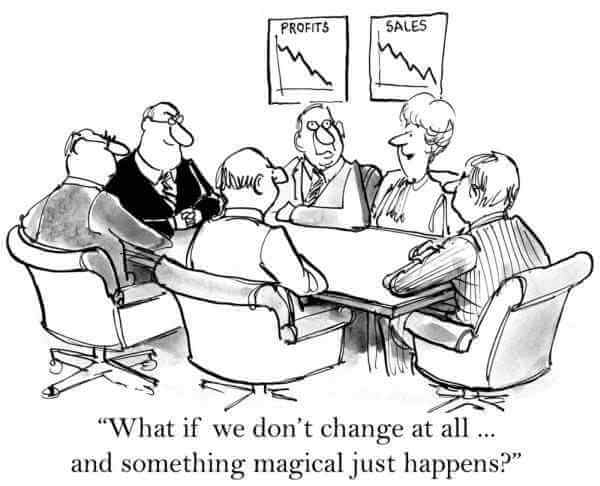
Summary
A declining job market can be an intimidating and uncertain experience for any professional. Finding or maintaining employment can become a challenge, which is why it is essential to understand how to best manage your career through this difficult time.The key to properly navigating a declining job market is to take a proactive approach to job search. This means actively reaching out to potential employers as well as staying up-to-date on industry trends. It is also important to continually update your resume and professional network in order to stay competitive.
Another important factor in managing your career during a declining job market is to remain flexible. This includes being willing to accept new roles and job titles which may require different skillsets than what you are used to. Additionally, consider taking on freelance projects which can offer valuable experience and job-hunting opportunities outside of the traditional job search.
Finally, do not let the decline in the job market become a source of discouragement. Instead, focus on developing new skills that can be put to use in different fields and industries. This can include skills such as problem-solving, communication, and leadership which are often transferrable across different roles.
In order to manage your career in a declining job market, it is important to remain proactive and flexible. Reach out to potential employers, build and update your resume and professional network, pursue freelance projects, and hone valuable skills. With the right proactive steps, you can stay competitive and remain hopeful of finding the right job.
Managing Your Career in a Declining Market
In the current economic climate, many job seekers are struggling to find viable career opportunities. As the job market continues to decline, it is becoming increasingly difficult for job seekers to find employment. However, there are still options for those who are willing to put in the effort and work hard.For individuals looking to survive a declining job market, it is important to keep a few key tips in mind. One of the most important tips is to focus on actively managing your own career. This means taking the initiative to reach out to contacts, network, and explore different job opportunities. Additionally, it is essential to ensure that you have an up-to-date resume and LinkedIn profile that accurately reflects your experience and skills.
It is also important to remain flexible and make sure you are attractive to potential employers. Take the time to learn new skills and become a more versatile individual. Consider taking courses, participating in internships, or joining job-networking events. This will help you stand out in a competitive job market.
It is also essential to keep an open mind and be prepared to accept a job outside of your desired field if necessary. By being willing to consider alternatives, you may be able to find a career that is suitable for you in a slow job market.
Tips for Managing Your Career During Economic Uncertainty
Finding employment in an uncertain economy can be challenging. However, job seekers need to take an active role in managing their career in order to stay competitive. This means ensuring that resumes and LinkedIn profiles are up to date, networking with industry contacts, and looking for new job opportunities. Additionally, it is important to step out of your comfort zone and acquire new skills and experience by taking courses, internships, and attending job events. Furthermore, job seekers should not be afraid to consider jobs outside of their desired field in order to gain employment. By taking initiative and staying flexible, it is possible to survive in a declining job market and find a career that suits you.The panic, if it can be called that, sets in quickly.
You may not recognize the panic, or it may rest just beneath the surface of your conscious life. This panic is centered on the uncertainty of a young lawyer's life. The firm's standards may at times seem impossibly high. A typo on a document might send a pantheon of powerful partners into a fury. The hours can be long. A client might want something overnight. There are partners with no private lives, spending all their working hours at the firm. There appear to be no benchmarks other than hours billed-and the more hours, the better. Stories circulate: At X Firm, one senior associate billed 3,100 hours his eighth year and another billed 2,950-the associate with more billed hours made partner, and the other lawyer was forced to leave the firm. Such a story may be merely apocryphal, but serves to highlight the overriding importance of billable hours. In this type of environment, a lawyer cannot help but ask him/herself the following questions:
- Am I cutting it? And just what is required to "cut it"? Am I up to this, and can I keep it up for 30 years?
- Do some partners prefer working with certain associates? If so, what are these associates doing that I'm not?
- Which types of practice and which partners seem to hold the most power?
- Which partner might become my mentor? Will any partner ever take on this role with me? How do I get the process rolling?
- Which associates seem to be making the most headway?
- And if certain associates do seem to be making more headway, why is this happening? What are they doing that I'm not doing? What am I doing wrong?
- How can I stand out from the other associates without causing some sort of backlash?
- Finally, how long will it take me to make partner? What are my chances? Who is likely to be my primary competition?
Being an associate in a large firm can be pleasant when a collegial atmosphere exists nurtured by partners, associates, support staff, and clients. If an attorney lands in a practice area that he/she finds intellectually stimulating, so much the better. But even if the work situation is optimal, there remains doubt lying just below the surface, an angst that concerns the unknown future and the attorney's position in it. To be an associate is, in a sense, to always remain in a form of indenture to the firm's partners. This may well be tolerable through the first, say, four years, when the attorney is establishing work habits and developing skills to last a lifetime. But such indentured status begins to grow somewhat stale as the typical associate begins to run a docket of cases with minimal partner supervision. Attorneys typically report what can only be described as a moment of clarity somewhere between the end of their third and the beginning of their sixth years.
The Moment of Clarity
The attorney has begun to realize that the senior partners he/she works with every day are not gods and that most of the work is routine and does not require a brilliant, breakthrough intellectual analysis. In short, the romance is gone. What is left is a future stretching into decades filled with more of the same. The attorney realizes that he/she is just as competent as everyone else, but has flaws. Perhaps these flaws have to do with social-interaction skills. Perhaps there is a lack of connection with certain partners that may prove to be harmful. Perhaps the attorney finds it impossible to bring in new business. Perhaps there is a relationship with another associate that causes daily, gnawing resentment. What the moment of clarity amounts to is a combination of summing up one's experience in the firm and a simultaneous dropping away of the veils of expectation, idealization, hope, and promise. One's position in the firm is seen simply and starkly for what it is.
The Search for Legal Nirvana
What rests behind this moment of clarity is the contrast between what one's life has become and what an individual seeks, which is complete control over one's life. Such freedom, if there is indeed such a state, is instinctively sought, and this complete freedom is envisioned by most associates as earning a partnership in a big firm. Getting a partnership offer is the problem. There are no rules to follow, no GPA to be achieved, and no LSAT to pass. Instead, political skills, sheer determination, and billable hours come into play. It may seem unfair that having run the gauntlet of high school grades, SAT, college grades, LSAT, law school GPA, law review, clerkships, and acceptance by a name-brand firm, the battle begins anew, with rules not cast in stone. These rules, as undefined as they are, seem to call upon one's ability to form bonds and deflect criticism. They seem to involve outworking everyone else. They seem to involve who can parlay enough family and other contacts into billable clients. And what the hell does any of this have to do with being a good lawyer?!!
The problem with the associate's search for ways to make partner is that just running up the most billable hours is not enough. On the other hand, bringing in several million dollars of business and being able to keep at least nominal control of it would certainly guarantee a partnership or, as a Plan B, the ability to move elsewhere with clients in tow. If one can achieve this, the associate's personality conflicts inside the firm, if any, become less important.
But What if a Lawyer Doesn't Want to Be a Rainmaker?
What then? Can one still make partner without bringing in clients? Yes. There are other ways. One can become an unrivaled expert in some narrow but revenue-producing corner of the law. Clients with specific types of problems will be drawn to the firm because it has a reputation for solving them. The associate with expertise in this field will get the bulk of this new work or have an important say in how this work is conducted. One can bill more hours than his/her competition (other associates in the same class). One can get visibility outside the firm by serving on commissions and boards. One can marry the managing partner's daughter or son. One can watch as other associates jump ship and hope that he/she will be the last one standing at the end of eight or so years.
Conclusion
Okay, so you've got big-time angst. You don't know what to do. Here's a solution. Let the situation play out. The worst that can happen is that you must leave big-firm life and try for happiness at a smaller firm, or go in-house. You might not make partner or find happiness there either, but you are more likely to keep your job and develop a life outside the firm. In such a scenario, the trajectory of your life is dictated for you by outside forces. Not a pleasant thought. On the other hand, everyone's life is dictated by outside forces, even those who stayed behind at your prior firm and made partner. For instance, they will die at a moment not likely to be of their own choosing. In the meantime, there will be deaths in the family, divorces, possible disappointments with children, and other unpleasantness. The key is to be content with a combination of what you have achieved and what is forced upon you. Partnerships are not at the center of such considerations. You only think they are if you allow the culture of the law firm to dominate your thinking. It is in the moment of clarity that you can gain a new perspective. Happiness won't likely be the result, but a sense of calm and acceptance will make the rest of your life that much better.



